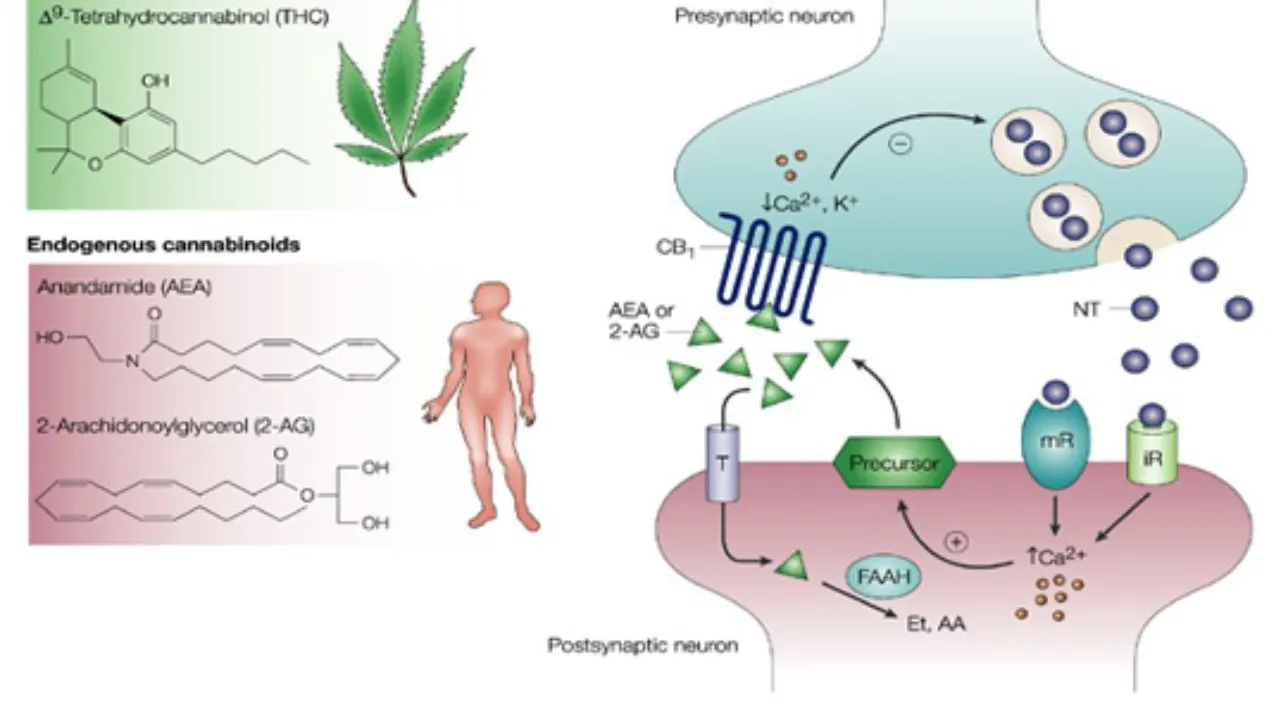The Endocannabinoid System in Stress-Related Psychiatric Illness
What is the endocannabinoid system (ECS)?
For centuries cannabis has been used for relief from stress and anxiety suggesting that the compounds found in the plant regulate the body’s stress response, and in fact that’s just what researchers are finding. The endocannabinoid system (ECS) is a system of receptors and molecules that regulate a variety of responses in our bodies. These cannabinoid receptors coined CB1 and CB2 are like special locks only allowing the binding of molecules with specific configurations called endocannabinoids (eCBs). Cannabinoids produced in the cannabis plant can also bind to these receptors, producing a similar, but longer-lived effect than eCBs. The binding of these compounds to these receptors induces eCB signaling which serves as a means to buffer the body’s stress response.
How does the endocannabinoid system work?
Following exposure to stressful environments eCBs are released into the synapse, the space between two neuronal connections. Here they bind to cannabinoid receptors, causing the release of neurotransmitters to be inhibited in that particular neuron (presynaptic neuron).
The ECS could be compared to your brain’s climate control. When too much activity is occurring in the brain your ECS kicks in and quiets this activity, bringing levels back to base line. This eCB signaling occurs in a retrograde (backwards) fashion meaning the eCB is released from the post-synaptic neuron and acts on the cannabinoid receptors of the pre-synaptic neuron. Ultimately, this leads to an overall decrease in neurotransmitter release, quieting this activity.

The ECS and its relationship to depression and anxiety
The action of eCBs at cannabinoid receptors has been implicated in variety of mood and stress related illnesses such as depression and PTSD. To study how these receptors play a role in these disorders researchers created mice lacking the cannabinoid receptor CB1. These mice exhibit increased anxiety suggesting that these receptors are important for regulating these behaviors. Additional support for this idea came from the observation that increased levels of eCBs in blood is associated with reduced anxiety and depression while lowered levels have the opposite effect. Based on studies of these mice and the observation that cannabis alleviates stress, researchers believed that cannabinoid receptors could be an ideal target for the treatment of PTSD. They found that when they stimulated these receptors in models of PTSD using compounds similar to THC there was a significant improvement in symptoms, confirming their hunch.
Further confirmation of the involvement of cannabinoid receptors in depression and anxiety came about because of a weight loss drug that came to market in 2006 called Rimonabant. Rimonabant acts by blocking the CB1 receptor causing a significant reduction in eCB signaling. Though the drug worked well for weight loss it was promptly removed from the market after it resulted in numerous reports of severe anxiety, depression, and in some cases suicide.
Taken together, this data shows that the ECS plays a critical role in the regulation the body’s stress response with deficient eCB levels being associated with anxiety behaviors and depression, while elevated levels of eCBs are associated with reduced anxiety and stress. Through this deeper understanding of the ECS researchers can now focus on developing new compounds that act on this system to alleviate and hopefully cure some of these debilitating ailments.
Source: Hill, 2013. “Translational evidence for the involvement of the endocannabinoid system in stress-related psychiatric illnesses” Biol Mood Anxiety Disord. 2013; 3: 19.
